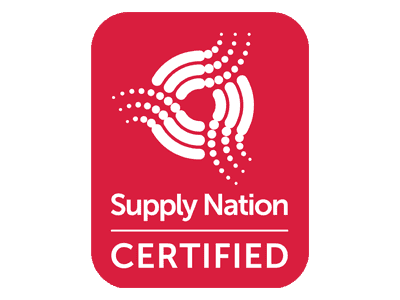
LET’S FIND YOU A ROLE TO MEET YOUR PROFESSIONAL AND PERSONAL GOALS
At Rainy Day we work closely with you to find a role best suited to your skillsets, goals and the type of position you are looking for.
Our vast network of employers and extensive expertise helps us find you a professional services role that both matches your skills and requirements and ensures a good cultural fit.
ROLES WE HIRE FOR
- Accountant: Prepares financial statements, manages accounts, and assists with budget planning and audits.
- Accounts Payable/Receivable Clerk: Manages invoices, receives and makes payments, and tracks financial transactions.
- Auditor: Examines financial records to ensure accuracy and compliance with laws and regulations.
- Bookkeeper: Maintains financial records, including transactions, balancing accounts, and preparing reports.
- Collections Officer: Responsible for recovering unpaid debts and managing overdue accounts.
- Company Accountant: Manages financial records and reports for a specific company, overseeing internal budgets and financial planning.
- Cost Accountant: Specialises in analysing costs of production and operations to aid financial planning and budgeting.
- Credit Controller: Oversees credit policies, manages customer credit accounts, and pursues overdue payments.
- Financial Accountant: Focuses on financial reporting, analysis, and the preparation of financial statements.
- Financial Analyst: Analyses financial data, produces forecasts, and assists in financial decision-making.
- Hardship Officer: Assists clients facing financial difficulties, offering solutions and support.
- Lending Officer: Evaluates and approves loan applications, managing client relationships and loan portfolios.
- Payroll Officer/Manager: Manages payroll processing, ensures accurate salary payments, and complies with tax laws.
- Public Accountant: Provides accounting services to individuals, businesses, and organisations, including tax preparation and financial advice.
- Tax Accountant: Specializes in preparing tax returns, advising on tax issues, and ensuring compliance with tax regulations.
- Tax Consultant: Advises on tax strategy, compliance, and planning for individuals and businesses.
- Administrative Assistant: Handles routine office tasks like answering phones, organising files, scheduling meetings, and assisting with other clerical duties.
- Client Services Officer/Manager: Handles client inquiries, provides service information, and resolves any client issues.
- Data Entry Clerk: Enters data into computer systems, verifies accuracy, and may assist with document preparation and filing.
- Data Entry & Word Processing Operator: Inputs data, prepares and formats documents and may assist with word processing tasks.
- Document Controller: Manages company documents, ensures proper storage and retrieval, and maintains version control.
- Executive Assistant: Supports senior executives by managing schedules, arranging travel, preparing reports, and handling communication on their behalf.
- Facilities Coordinator: Manages building and equipment maintenance, liaises with vendors, and ensures compliance with health and safety standards.
- Office Manager: Oversees administrative functions, supervises staff, manages office budgets, and ensures smooth office operations.
- Personal Assistant: Assists individuals with daily tasks, scheduling, and correspondence and may handle personal errands.
- Personal/Executive Assistant: Supports high-level executives with administrative tasks, managing communications and scheduling.
- Receptionist: First point of contact for visitors, handling incoming calls, managing appointments, and providing general administrative support.
- Records Manager/Document Controller: Manages organisational documents and records, ensuring accuracy, security, and compliance.
- CEO – Chief Executive Officer: Top executive responsible for overall management, strategy, and decision-making in an organisation.
- CFO – Chief Financial Officer: Senior executive overseeing financial planning, risk management, and financial reporting.
- Chairperson: Presides over board meetings, sets agendas, and ensures effective governance.
- CMO – Chief Marketing Officer: Leads marketing initiatives, brand management, and market research.
- COO – Chief Operations Officer: Manages day-to-day operations and implements business strategies.
- Executive Director: Responsible for the organisation's consistent achievement of its mission and financial objectives.
- Managing Director: Oversees company operations, makes strategic decisions, and represents the company externally.
- Non-Executive Director: Serves on a company's board of directors but is not part of the executive management team.
- Business Analyst: Analyses business processes, identifies improvements, and proposes solutions to enhance efficiency.
- Customer Success Manager: Ensures clients achieve their goals using a company's products or services, fostering positive relationships.
- Financial Consultant: Advises clients on financial planning, investments, and wealth management.
- Information Manager: Oversees the handling, storage, and dissemination of information within an organisation.
- Innovation Consultant: Advises on innovation strategies, new product development, and market entry.
- Knowledge Manager: Manages knowledge within an organisation, ensuring effective sharing and utilisation of information.
- Management Consultant: Advises organisations on management strategies, organisational improvements, and business optimisation.
- Organisational Development Consultant: Focuses on improving organisational effectiveness, culture, and employee engagement.
- R&D Consultant: Assists with research and development strategies, innovation processes, and technology implementation.
- Strategy Consultant: Specialises in developing strategic plans, analysing business models, and advising on long-term goals.
- Commonwealth Government:
- APS 1-2 (Administrative Assistant/Clerk): Entry-level positions, handling clerical tasks and essential administrative support.
- APS 3-4 (Administration Officer/Analyst): Mid-level administrative roles involving analysis, policy support, and program administration.
- APS 5-6 (Senior Officer/Advisor): Senior roles, responsible for policy development, project management, and strategic advice.
- EL 1 (Executive Level 1): Lower executive level, leading teams, managing projects, and developing policies.
- EL 2 (Executive Level 2): Higher executive level, responsible for significant projects, policy areas, and leadership.
- SES Band 1 (Senior Executive): High-level managerial roles, leading large teams and major initiatives.
- SES Band 2 (Deputy Secretary): Very senior role, often overseeing entire departments or large divisions.
- SES Band 3 (Secretary): Top-level executive, typically leading a department or major government entity.
- Local Government/Council:
- Roles in local government vary widely, typically including administrative, managerial, planning, and community service roles focused on local area governance and services.
- State Government:
- Administrative Assistant/Clerk: Similar to the Commonwealth role, handling clerical and administrative tasks.
- Administration Officer: Responsible for a range of administrative duties within state government departments.
- Director: Senior role, directing departmental strategies and operations, and often managing large teams.
- Executive Director: Highest level in state government departments, leading major initiatives and strategic direction.
- Manager: Oversees specific departments or projects, responsible for staff and operational outcomes.
- Senior Administration Officer/Coordinator: Manages complex tasks, coordinates projects, and may lead a team.
- Senior Manager/Advisor: Provides high-level advice and manages significant projects or policies.
- Compliance Officer: Ensures that an organisation adheres to legal standards and internal policies.
- Contract Manager: Manages contracts, ensures compliance, and handles negotiations and disputes.
- Inhouse Counsel: A lawyer employed by a company to provide legal advice and services.
- Legal Advisor: Provides legal counsel, advises on legal matters, and ensures compliance with laws.
- Risk Manager: Identifies, assesses, and mitigates risks to the organisation, focusing on financial, operational, and legal risks.
- Communications Consultant: Specialises in internal and external communications, public relations, and media strategies.
- Copywriter: Creates written content for advertising, marketing materials, and digital platforms.
- Event Coordinator: Plans and executes events, manages logistics, and coordinates with vendors and stakeholders.
- Marketing Consultant: Advises on marketing strategies, brand development, and market research.
- Public Relations Consultant: Focuses on managing public image, media relations, and communication strategies.
- Account Manager: Manages a company's relationships with particular clients or portfolio of clients, ensuring their needs are met, and identifying opportunities to grow the account.
- Business Development Executive: Identifies new business opportunities, builds client relationships, and proposes strategies to develop new markets or products.
- Business Development Manager: Leads the efforts to expand the company’s client base and markets. Involves strategic planning, sales forecasting, and negotiation.
- Client Relationship Manager: Focuses on maintaining and enhancing relationships with existing clients, understanding their needs, and ensuring a high level of customer satisfaction.
- Client/Sales Administrator: Provides administrative support for the sales team, managing schedules, creating sales documents and proposals, and handling customer queries.
- Key Account/Relationship Manager: Manages a small number of the company’s most significant accounts. Responsible for the overall relationship with these key clients and for developing strategies to increase sales and ensure client retention.
- Sales Coordinator: Supports the sales team in achieving its targets by coordinating sales activities, managing schedules, and keeping track of sales figures and client information.
- Sales Engineer: Combines technical knowledge with sales skills to provide advice and support on a range of products. They liaise regularly with other members of the sales team and colleagues from a range of departments, such as research and development, design, purchasing, production, and quality, as well as senior company managers.
- Sales Representative/Consultant: Acts as the primary point of contact between a company and its clients, selling products or services, managing client relationships, and identifying new sales opportunities.
- Technical Sales Representative: Specializes in selling technical products, requiring a deep understanding of the product’s parts, functions, and processes.
- Compensation/Benefits Specialist: Manages employee compensation, and benefits programs, and ensures competitive and equitable practices.
- Instructional Designer: Designs educational content and training materials, often for online learning.
- Learning & Development Officer: Designs and delivers training programs, and supports professional development initiatives.
- Learning and Development Specialist: Specialises in creating and implementing learning strategies and programs.
- Training & Development Manager: Oversees training and development strategies, aligning them with organisational goals.
- Training Consultant: Works with organisations to identify training needs and develop tailored training solutions.
- HR Consultant: Provides expert advice on human resources practices. They help companies with HR strategy, including organisational design, talent management, and compliance with employment laws.
- HR Officer/Manager: Manages human resources activities, including recruitment, training, and employee relations.
- Insolvency/Recovery Specialist: Works with businesses facing financial difficulties. They advise on insolvency proceedings, restructuring, and financial recovery strategies.
- Policy/Planning Specialist: Responsible for developing policies and plans, typically in a government or corporate setting. They research, analyse data, and draft reports to aid in decision-making and strategic planning.
- Procurement Manager: Oversees the procurement department, sets buying strategies, manages supplier relationships, and ensures procurement policies are followed.
- Procurement Officer: Manages purchasing activities for an organisation, sourcing suppliers, negotiating contracts, and ensuring the cost-effective acquisition of goods or services.

